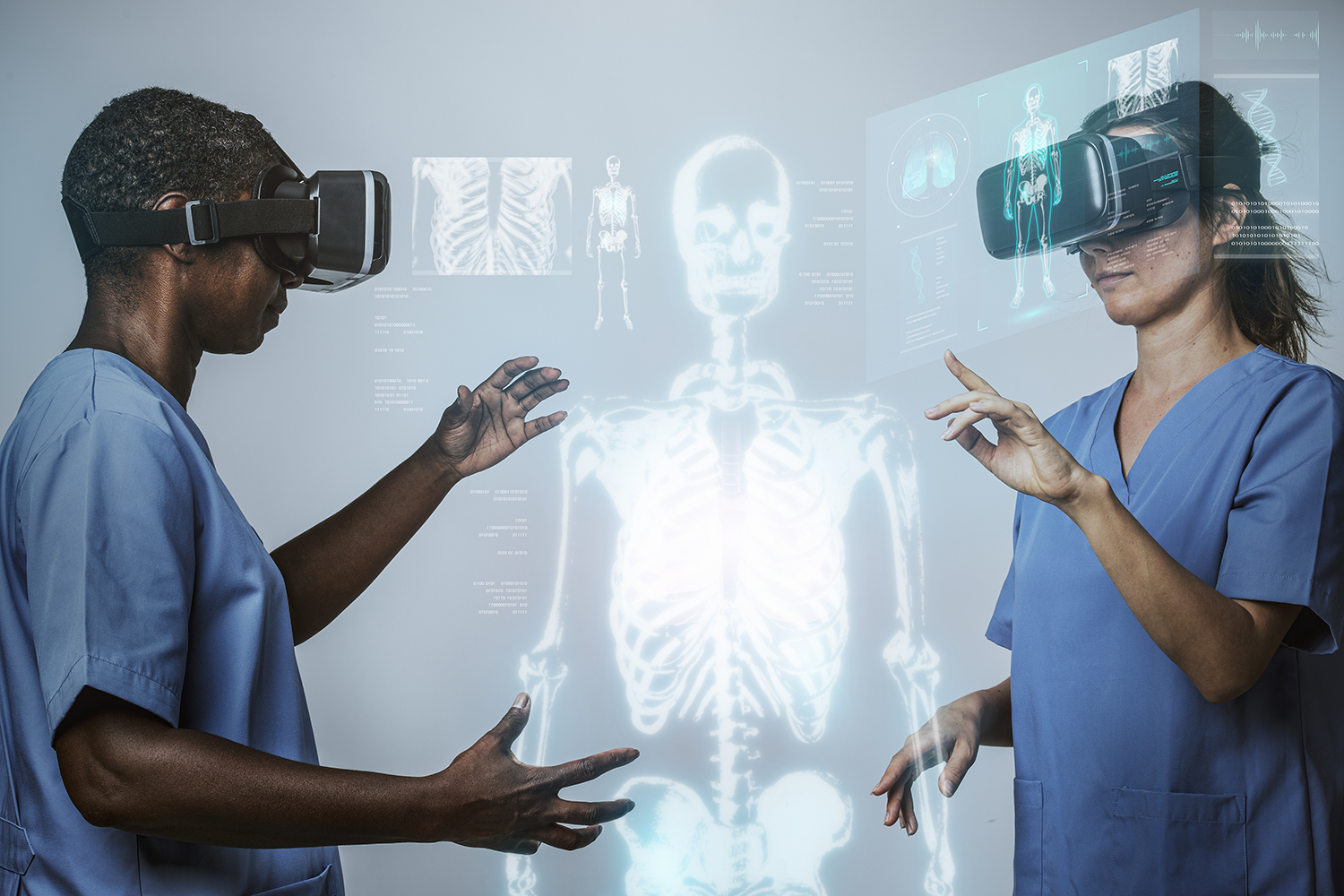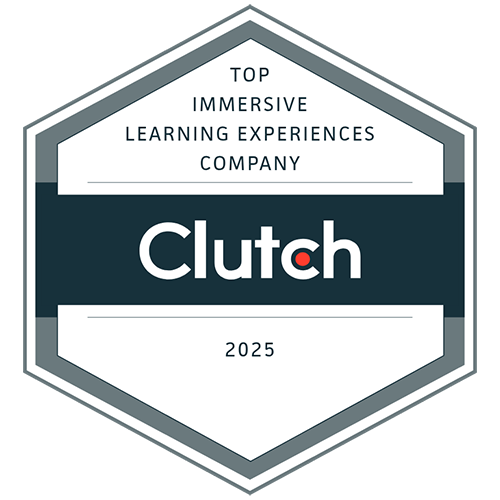When you hear the term “metaverse,” what are the first associations that come to your mind? You probably start thinking about entertainment, VR-powered games, or events taking place in a virtual dimension. However, while still in the earliest stages of its development, the metaverse has already gone further and entered dozens of various industries.
Healthcare is one of those segments where the metaverse started generating the most value and has the full potential to turn into a must-have tool for every medical institution with the passage of time. How is it possible and is the metaverse really worth your attention? We are going to answer this question from the perspective of a metaverse development company that explores the amplifying capacities of this technology on a daily basis.
Metaverse in Healthcare Industry: The Overview of the Concept
Let’s start with the basics. The metaverse is an idea representing the digital environment, which will consist of interconnected virtual worlds users will be able to access through VR hardware. People will navigate the metaverse through personalized avatars that will have the capacity to interact with each other, as well as with the surroundings.
Truth be told, this vision is far from its full-scale implementation. As for now, the industry has dozens of stand-alone metaverse platforms where users can already get acquainted with the technology and leverage it for different purposes. However, there is still a lack of interconnectivity that will actually turn various metaverse projects into one intertwined network.
Yet, the amazing possibilities of healthcare in the metaverse you might have heard about are true. Metaverse in the healthcare market strengthens its position, with more and more health tech companies releasing metaverse-based solutions designed to provide assistance for doctors, surgeons, psychotherapists, and hospital administration.
The convergence of metaverse and healthcare allows transferring of dozens of processes into the virtual dimension, and this creates several directions for the healthcare metaverse, namely:
- mental health and neurological treatments;
- blockchain for scoring and sharing healthcare data;
- medical training and education;
- medical procedure assistance;
- physical therapy and rehabilitation;
- blockchain ecosystem for payments and supply chain applications;
- AR/VR infrastructure for biotech;
- vision diagnostics and eye tracking.
How Does the Metaverse Transform Healthcare?
The use of metaverse in healthcare is definitely a breakthrough. And while it’s too presumptuous to assume that the metaverse will completely replace traditional medicine, it shows promise to reinvent healthcare approaches in upcoming years and bring new experiences both for healthcare providers and patients. The metaverse creates an additional dimension for doctors and patients to interact, which isn’t restricted by location, time, or other limitations of the physical world. This generates a set of benefits.
First, combined with extended reality (XR), the metaverse enhances the quality of care professionals can provide remotely, as they get a chance to examine the patient more thoroughly than they would merely through telemedicine.
Second, it’s possible to copy objects, organs, or even a patient’s body from the real world into the metaverse, where users can easily manipulate or change them, and set up experiments or simulations. This reveals new opportunities for specialists in education, diagnostics, prediction, and testing.
Overall, the potential of the metaverse for healthcare is unlimited. The change is happening now, even if on a small scale, making the process of providing healthcare services more patient-friendly, accessible, and convenient.

Challenges of the Metaverse Adoption in Healthcare
The metaverse generates a lot of hype and promise, but still, there is some resistance that makes the general adoption of the metaverse in the healthcare industry more complex and challenging than it sounds.
COVID-19 and a string of lockdowns have pushed the healthcare sector to rapid digitalization, which made the industry more susceptible to embracing technologies. Though it paved the way for metaverse healthcare companies, the infrastructure, medical professionals, and patients may not be ready to interact with the virtual dimension yet.
-
First, there is a question of upfront costs: the metaverse demands expensive hardware (VR headsets, gloves, etc.), as well as strong tech infrastructure that will provide sufficient bandwidth and connection speed. The majority of institutions probably won’t be able to afford such substantial investments at once, and this slows down the pace of metaverse adoption into healthcare.
-
Second, the metaverse is still lacking interoperability standards, as well as a thought-through strategy regarding data protection and privacy. As for now, these two struggles create additional risks and reduce the potential efficiency of healthcare in the metaverse. However, it’s only a matter of time, as the industry's progress will imply the development of common standards, mechanisms, and regulations.
-
Third, for many people, the metaverse remains an enigma from sci-fi books and movies that can’t yet exist in the real world. The lack of comprehension makes patients and even doctors wary of metaverse-powered tools, pushing them to prefer traditional approaches to innovative solutions. Nevertheless, if metaverse health enthusiasts within medical institutions take their time to explain the benefits and mechanisms of the technology and ensure positive initial experiences with the tools, it will ignite interest and raise trust in the metaverse.
Top Metaverse Healthcare Use Cases

As we have already mentioned, the metaverse is only in the initial phase of its advancement, meaning that the list of already applied and tested metaverse use cases in healthcare is pretty modest. But even with such limited implementation, the technology manages to drive changes and create enhanced conditions for medical professionals to provide their services. Let’s contemplate the most prominent metaverse usage examples in the industry.
Metaverse Surgery
Medical surgery is the sphere embracing cutting-edge technologies faster than anyone else. Of course, the metaverse is not an exception, and there are already successful cases of using the virtual dimension to “rehearse” complex surgeries before actually performing them on real patients.
The metaverse allows surgeons from different locations to gather in the same operating theater, thereby combining their experience for the good of the patient. This way, world pros can contribute their unique expertise to hard cases without the need to travel, meaning that the chance of them actually joining the surgery increases.
Virtual reality also can provide detailed visualization of a patient’s organism during surgery, helping surgeons understand better where the target areas are and where their instruments are going. Just imagine: while performing surgery, doctors can contemplate the virtual copy of a patient’s body and actually see their organs and vessels that are in reality hidden under the skin and other tissues.
Metaverse Therapy
Teletherapy has become a thing during the pandemic, allowing patients and therapists to connect through video-conference platforms like Zoom or Google Meets. The metaverse mental health therapy takes it further, ensuring a deeply immersive experience. Patients dive into the life-like dimension, where they can see and interact with their therapist almost the same they would in reality.
This is a huge advantage for the psychotherapy segment: patients need to feel comfortable to open up, and the majority of people still prefer face-to-face sessions to virtual meetings. However, in our ever-changing reality, not everyone has a chance to be physically present in the same location with their therapist, and the metaverse generates a graceful solution for this struggle.
Another important metaverse implementation here is VR-powered exposure therapy and addiction treatment: professionals can recreate necessary real-world circumstances but in controlled environments, helping patients overcome their struggles and getting them ready to encounter them in ordinary life.
Virtual Hospitals
UAE has announced the launch of the first metaverse hospital in the world, transforming the whole concept of hospital access and care, removing physical barriers for disabled people. The transfer to virtual reality allows healthcare providers to reduce waiting times and patients from other countries to apply to institutions located thousands of miles away from them.
With the help of digital avatars, patients will be able to enter virtual hospitals and immerse themselves into this space like in reality and get remote consultations from physicians with more expertise.
At the same time, metaverse hospitals reinvent the experiences for on-site patients: through metaverse and virtual reality, they can attend their homes, visit familiar environments, as well as connect with relatives and friends without leaving the hospital.
Variety of Digital Twins
Digital twins have become a central element of the metaverse because they allow for bringing real-world objects into the metaverse and ensure that the virtual copies will precisely represent their actual counterparts even under changing conditions.
In the healthcare industry, digital twins bring invaluable benefits, enhancing and reinventing dozens of processes for better efficiency, accuracy, and budgeting. There are three types of digital twins that are born at the merge of healthcare and the metaverse: digital twins of the facility, of patients’ bodies, and of medical devices and drugs.
Digital twins of a certain healthcare facility help professionals get an independent copy of the place, carefully evaluate everything happening there, and model different scenarios. This aids a lot in efficient hospital management, staff schedule optimization, and resource usage optimization, as well as a testing ground for modeling emergencies.
Patients’ digital twins allow doctors to leverage personalized data on their states more efficiently and plan treatment specifically for a certain person and even predict its efficiency before a patient starts taking medicine. Devices and drugs digital twins give additional capacities for scientists to test their products and improve their efficiency before actually starting the manufacturing process.
Click here.
Immersive Medical Education
The metaverse, combined with the aforementioned digital twins, revolutionizes medical training as well. Now, thanks to VR/AR capacities, students can gain practical experience even before they get into operational theater or start interacting with real patients.
Anatomic models put into the metaverse allows trainees to learn the human body in detail, and pre-arranged educational scenarios help them to master skills they would need in their future practice. All the training happens in a controlled environment, with the risks of traditional training being absent.
Overall, the implementation of the metaverse improves the quality of training for future medical professionals, not only helping them to gain experience from the start but teaches them to stay flexible and open to new technologies.
The Future of Healthcare in the Metaverse
Combining healthcare and metaverse capacities is definitely a path to the future where healthcare is fully digitalized, anyone gets quality medical care despite the physical inability to get to the facility, and cutting-edge technologies enhance the efficiency of treatment.
The metaverse trends remain a hot topic, and with the value it has already delivered to the healthcare industry, it’s predicted only to expand and develop further. However, to flourish into its original concept, the metaverse industry needs to overcome its major challenges, like implementing necessary mechanisms for data protection and convincing medical institutions to invest in metaverse adoption.
Blockchain offers a solution to the first struggle, providing decentralization, enhanced security, transparency, and traceability to data exchange. The mass implementation of blockchain for healthcare has already started, and we will see its further growth with the passage of time.
As for mass investment in the metaverse from medical institutions, the situation depends a lot on getting convincing results that will constantly prove the value of the metaverse. But we can already observe a positive trend, with metaverse healthcare growing at a steady pace.
Reveal the Potential of Metaverse for Healthcare with Program-Ace
While healthcare in metaverse conditions is still in the early stages of development, it’s definitely a moment to tap into its potential, explore the opportunities, and understand how you can get the most value from the technology.
Make the metaverse implementation your competitive advantage, and Program-Ace, a leading custom software development company in the segment, will help you figure out the capabilities and advantages of this initiative. Contact us to learn how we can implement our metaverse development services for your benefit.























